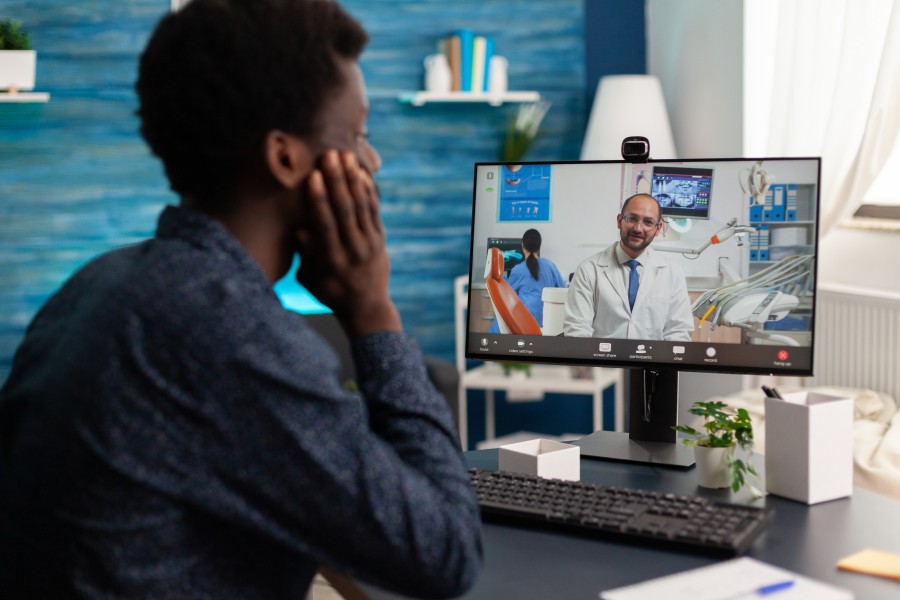In today’s fast-paced world, convenience and accessibility are key factors when it comes to healthcare. Thanks to advancements in digital technology, telehealth has emerged as a revolutionary solution that connects patients with healthcare professionals virtually—anytime, anywhere. Whether you need urgent care, therapy, or psychiatric support, telehealth services provide expert care without the need to visit a clinic physically.
What Is Telehealth?
Before diving deeper, let’s understand what is telehealth. Telehealth refers to the use of digital communication technologies such as video calls, phone consultations, and online messaging platforms to deliver healthcare remotely. It enables patients to connect with doctors, specialists, or therapists from the comfort of their home.
Unlike traditional healthcare, telehealth allows people living in rural or remote areas to access medical expertise easily. It also helps individuals with mobility issues, busy schedules, or chronic conditions receive continuous care without interruption.
Benefits of Telehealth Consultations
1. Convenience and Accessibility
The biggest advantage of telehealth consultations is convenience. Patients can consult with healthcare providers from their living room, office, or even while traveling. There’s no need to commute, wait in long lines, or rearrange your day for an appointment.
2. Access to Specialists
Through telehealth services, patients can access specialists such as dermatologists, cardiologists, or psychiatrists who may not be available locally. This is particularly helpful for those living in areas with limited medical facilities.
3. Affordable and Time-Saving
Telehealth often reduces the overall cost of healthcare. You save money on transportation, parking, and other incidental expenses. It also helps minimize lost work hours, making healthcare more affordable and time-efficient.
4. Continuity of Care
For patients with chronic illnesses like diabetes or hypertension, telehealth ensures regular monitoring and follow-up visits. This continuity of care improves treatment outcomes and reduces hospital readmissions.
5. Safe and Secure
Especially during times of contagious illness outbreaks, telehealth urgent care offers a safe way to seek medical attention while minimizing exposure to infections.
Telehealth Urgent Care – Quick Access to Medical Help
Medical emergencies don’t always wait for a convenient time. Telehealth urgent care bridges the gap by providing immediate access to licensed healthcare professionals who can assess symptoms, prescribe medications, and recommend next steps — all virtually.
For common issues like cold, flu, allergies, infections, rashes, or minor injuries, telehealth urgent care can save you an unnecessary trip to the emergency room. In most cases, patients receive digital prescriptions instantly, and follow-up visits are easier to schedule online.
Telehealth Therapy – Mental Health Support at Your Fingertips
Mental health is just as important as physical health. Telehealth therapy has become an effective way for individuals to receive counseling and support without the stigma or logistical barriers of in-person sessions.
Whether dealing with anxiety, stress, depression, or trauma, patients can connect with licensed therapists or counselors through secure video sessions. The privacy and flexibility of telehealth therapy often encourage individuals to seek help who might otherwise avoid therapy due to social discomfort or time constraints.
Telehealth Psychiatrist – Expert Mental Health Care Anywhere
For individuals who require medication management or specialized mental health evaluation, a telehealth psychiatrist provides expert care remotely. Psychiatrists can diagnose mental health conditions, adjust medications, and provide ongoing therapy through secure online platforms.
This form of telehealth care is particularly beneficial for people living in rural areas or those who struggle to find local mental health professionals. It also ensures privacy and continuity of treatment without frequent office visits.
Types of Telehealth Services
Modern telehealth platforms offer a wide range of telehealth services, including:
- Primary care consultations
- Urgent care and minor illness treatment
- Follow-up appointments for chronic conditions
- Mental health counseling and psychiatry
- Prescription renewals and medication management
- Specialist referrals and second opinions
- Preventive health check-ins
These services make healthcare more inclusive and patient-centered, promoting better health outcomes through early intervention and continuous monitoring.
How to Get Started with Telehealth
Using telehealth is simple and user-friendly. Most clinics and healthcare providers have online portals or mobile apps that allow you to:
- Schedule a virtual appointment.
- Fill out your medical history and symptoms.
- Join a secure video call with your healthcare provider.
- Receive prescriptions or recommendations digitally.
Ensure you have a stable internet connection, a smartphone or computer, and a quiet space for your appointment.
The Future of Healthcare Is Telehealth
The rise of telehealth has transformed how patients interact with healthcare systems. It has proven especially valuable in situations where access to care is limited or traditional visits are inconvenient. As technology continues to evolve, telehealth is expected to become even more integrated into our everyday healthcare routines, providing seamless, efficient, and patient-friendly care.
From telehealth urgent care to telehealth therapy and telehealth psychiatry, virtual consultations are redefining healthcare delivery — bringing expert medical guidance right to your screen.
Frequently Asked Questions (FAQs)
1. What is telehealth and how does it work?
Telehealth uses digital communication tools like video calls or messaging platforms to provide medical care remotely. Patients can consult with healthcare professionals without physically visiting a clinic.
2. Can telehealth urgent care treat serious conditions?
Telehealth urgent care is ideal for non-life-threatening conditions like colds, infections, allergies, and skin issues. For serious emergencies like chest pain or severe injuries, always visit an ER or call emergency services.
3. Is telehealth therapy effective for mental health?
Yes. Telehealth therapy is highly effective for mental health counseling, offering privacy, convenience, and access to licensed therapists through secure virtual platforms.
4. Can I see a telehealth psychiatrist for medication management?
Absolutely. A telehealth psychiatrist can evaluate, prescribe, and monitor medications for mental health conditions just like an in-person psychiatrist.
5. Are telehealth services covered by insurance?
Many insurance plans now cover telehealth visits. However, coverage may vary depending on your provider and plan, so it’s best to check in advance.
Fast, safe, and easy medical care is just a click away. Visit our website https://sccmidland.com/urgent-care/ and call us at (432) 322-8675 to experience Telehealth!


